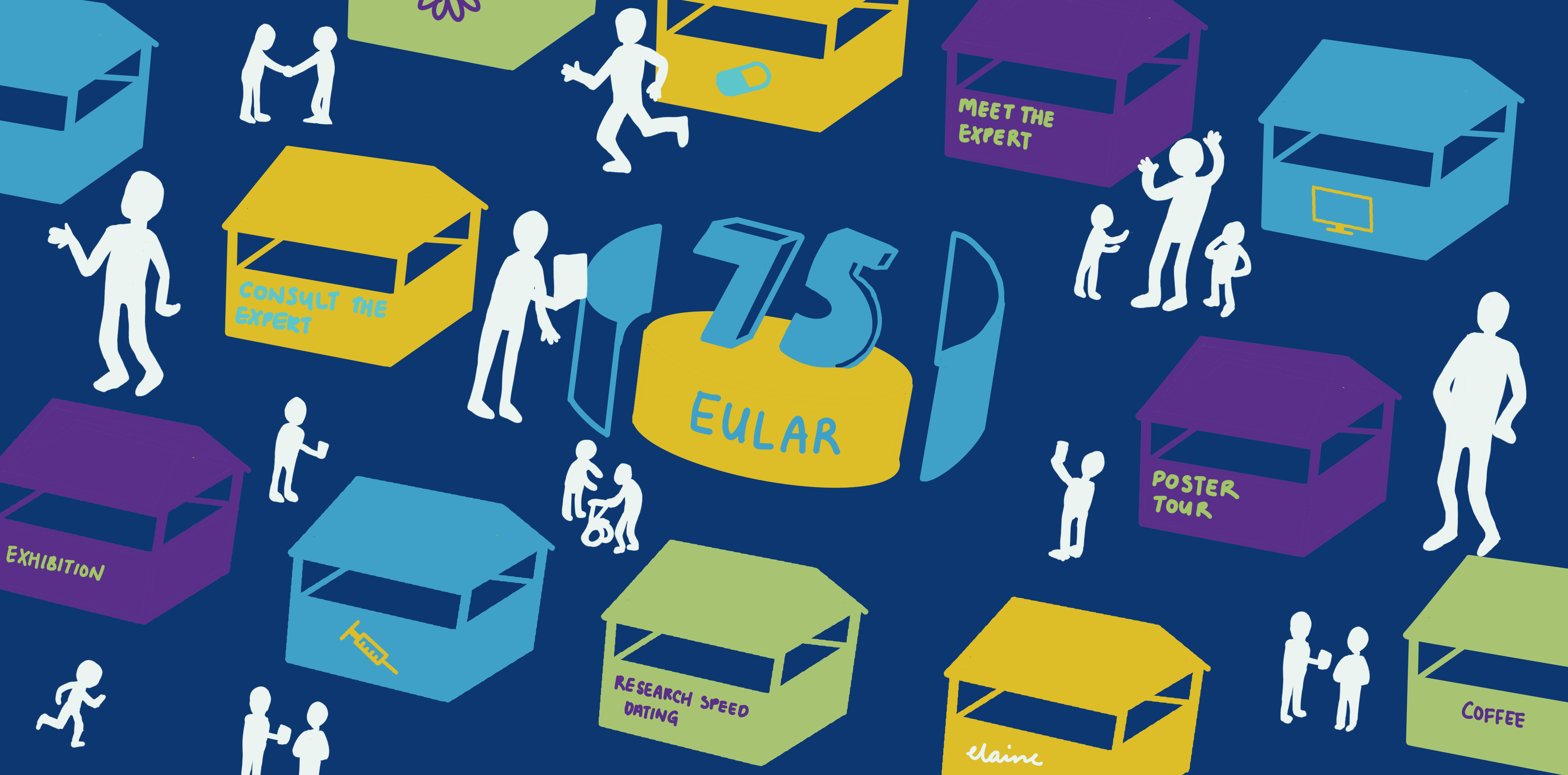Rheumatology advanced trainees Dr Sadia Islam and Dr Elaine Ng on the story so far - ICI-induced arthritis; SSc-ILD and rituximab; covid management and more.
At the end of Day 1, rheumatology advanced trainees Dr Sadia Islam and Dr Elaine Ng present their take on EULAR 2022.
Dr Sadia Islam
With the opening plenary session of the EULAR 2022 congress, our minds were opened to the heterogeneity of rheumatic and musculoskeletal diseases. Here I have focussed on studies that highlight the multidisciplinary nature of caring for patients with rheumatic disease.
Garzanova and colleagues (POS0904) evaluated 30 patients with systemic sclerosis (SSc) with associated interstitial lung disease (ILD) who received rituximab over a median follow-up of 25.6 months.
They reported an improvement in pulmonary artery systolic pressure (48.2mmHg vs 39.5mmHg, p=0.004), as well as forced vital capacity, 6-minute walk distance, stabilisation in DLCO and improvement in the Rodnan skin score.
Rituximab can be considered for patients with pulmonary hypertension as a complication of ILD-SSc in collaboration with our respiratory colleagues.
Liapi and Chatzidionysiou (POS1356) reported on 20 patients with immune checkpoint inhibitor-induced inflammatory arthritis and/or polymyalgia rheumatica (PMR).
Of the 14 patients that developed arthritis, 11 (79%) did not respond to glucocorticoids. Seven of these patients were commenced on csDMARDS and 71% responded, and all patients who were commenced on tocilizumab responded.
Targeted treatments could be considered earlier in the course in collaboration with our oncology colleagues.
Covid-19 in rheumatology has been a hot topic since the beginning of my rheumatology training, and we are continuing to learn in the ever-evolving paradigm of the covid era.
Kharouf and colleagues (POS1254) identified key risk factors for severe covid, hospitalisation and mortality for patients with autoimmune and inflammatory rheumatic disease (AIRD) in their Israeli multi-centre experience.
Factors associated with severe covid included age, comorbidities (diabetes, congestive cardiac failure), organ involvement of AIRD (pulmonary, renal, vascular) and treatment factors (prednisone, mycophenolate, JAK-inhibitors).
They also reported a smaller proportion of negative outcomes in patients with AIRD following the vaccination campaign, with lower rates of hospitalisation (53% vs 28%, p=0.0009) and mortality (9% vs 6.3%, p=0.04).
Parsons and colleagues (POS1225) evaluated factors associated with vaccination response in 71 patients with SLE who received either the Pfizer or Moderna vaccines.
They found a high SLEDAI score was associated with increased risk of impaired response to mRNA vaccination, regardless of current treatment. They also reported that patients who received the Pfizer vaccine were more likely to have an impaired antibody response compared with the Moderna vaccine.
These studies are crucial in informing our clinical practice in this new era of covid and educating our patients to enable them to make informed decisions and take an active role in their healthcare.
Dr Sadia Islam is a final year rheumatology advanced trainee at Royal Prince Alfred Hospital in Sydney.
Dr Elaine Ng

EULAR celebrates its 75th birthday by kicking off the 2022 Congress in the beautiful city of Copenhagen!
The buzz of energy from its delegates is palpable – from trainees whispering in the back row, to international colleagues reuniting in the main hall. It’s amazing to see so many people here – including some of the giants in field of rheumatology!
Dr Elaine Ng is a rheumatology advanced trainee based in NSW who enjoys drawing.



